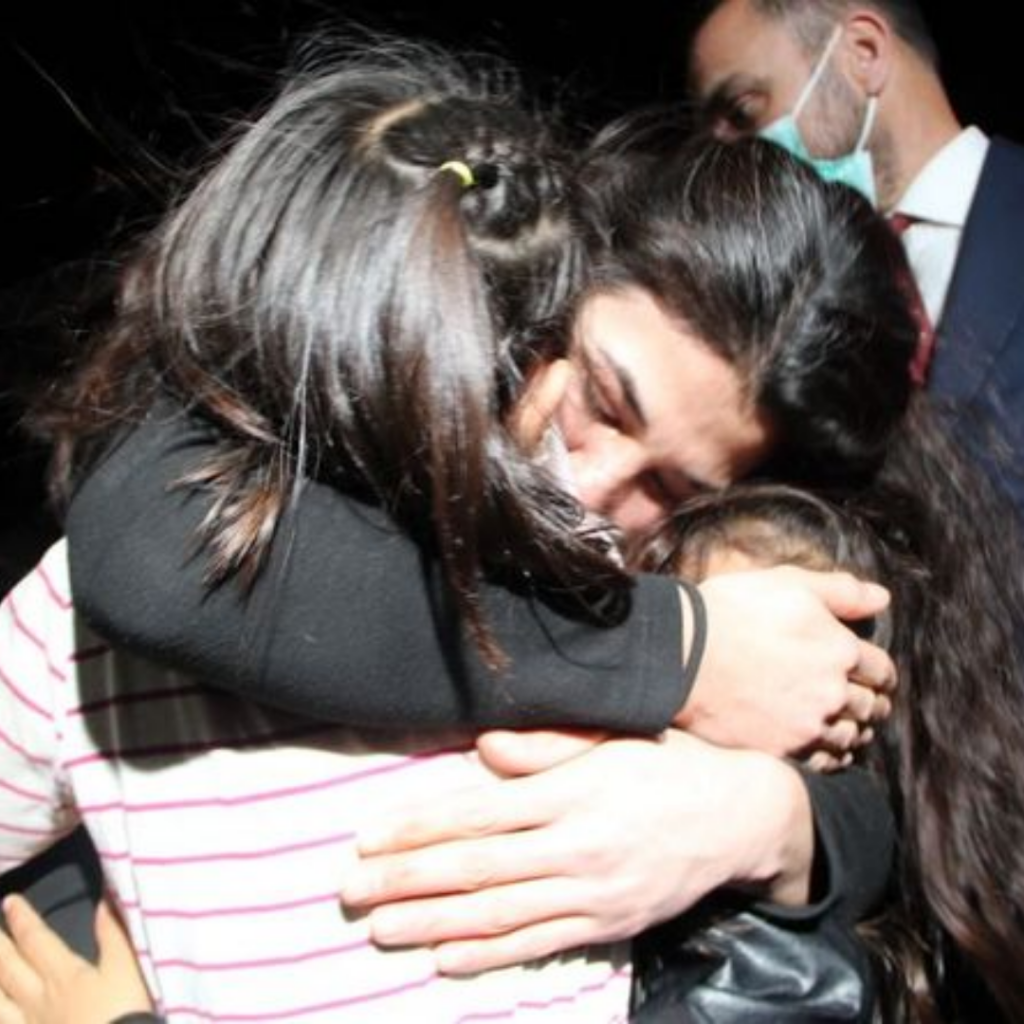The unfortunate story of Melek Ipek has sparked a critical discussion on surging domestic violence cases in Turkey. Melek was arrested for shooting her husband in self-defence after he had inflicted violence on her and her daughters and threatened to kill them with a hunting rifle. The media immediately published photos of Melek’s detainment, with clear evidence of visible trauma on her face and body. During the hearing, the court concluded her actions to be in ‘tension, fear and panic’ and had been ‘acting in defence against an attack on her life, bodily integrity and sexual freedom before and after the incident’. Ipek was later released on ‘no ground for penalising’.
After twelve years of marriage and two children, Melek and her husband Ramazan’s story ended in a horrific conclusion due to violence having become a regular occurrence in their household. Intertwined with the domestic violence was infidelity from Ramazan and brutality to their 8-year-old daughter. The woman Ramazan was allegedly having an affair with, has claimed she was also subjected to abuse from Ramazan and was afraid to file a criminal complaint against him because he had been ‘threatening her with harming her family’.
The torment Melek, her daughters, and the unidentified woman went through, is one case of hundreds and thousands actively terrorising Turkey at this moment. The recent uproar of protests in Turkey was fuelled in March when the county ‘abandoned an international accord designed to protect women’ from domestic violence. The deputy chairperson of the Republican People’s Party tweeted about the opposition’s decision of forsaking the convention and how it was a deliberate attempt at “Keeping women [as] second-class citizens and letting them be killed”.
The ‘We Will Stop Femicide’ campaign has estimated ‘at least 300 women were murdered’ in Turkey just last year with several other cases being found in ‘suspicious circumstances’; projecting the figure to be much greater. The setback has prevented the country from moving forward and has ignited fear for women and potential victims of abuse. Melek and her children were able to avoid jail time and separation but the detrimental impact on their physical, mental and emotional states is something that will take years of therapy, treatment, and healing to overcome.
Domestic violence is a demonic existence spread over households across the globe; the angelic light being the services available to support women and aid in their recovery. In Turkey, the upsurge in covid cases has meant more women have been trapped at home with their violent counterparts and seeking help. In May 2020, the Turkey Ministry claimed that during the lockdown there had been a decrease in the reports made of violent crimes against women with numbers being less than the previous year. The issue however is the unreliability of how the system manages the complaints made by victims of domestic violence.
In one case reported by ‘Mor Cati’, the oldest women’s shelter foundation in Istanbul, a college student had been beaten up by her brother and father; and when she made a complaint to the police she was told, “We cannot take any protective measures since you are not married”. In another situation, a police officer broke confidentiality procedure by disclosing to his friend the whereabouts of his wife, who had escaped their abusive marriage and was living in a women’s shelter.
The fault in the Turkish system is the corruption in authority and their obstinate attitude to make a difference for women. The effort to make a change is predominantly undertaken by women’s organisations, protesters, app developers, and supporters from outside Turkey. The “You’ll never walk alone” protest against femicide in Istanbul, early this year, saw thousands of people unite to raise awareness of the violence impacting their women.
In 2018, an app named ‘KADES’ was developed in collaboration with the Turkish National police. It was established for women who were experiencing domestic violence; and allowed them to receive emergency assistance with one touch on the app.
In the UK, Melissa Doyuker Marks, a half Turkish and British citizen created a Crowdfunder page raising money to stop domestic violence in Turkey. She is almost at £4,000 and has reassured supporters the European Bank for Reconstruction and Development, the company she works for, will match the money raised from the Crowdfunder. The total money generated will be donated to the Mor Cati foundation, which will then help provide more shelters in Turkey for women and children.
To assist the change, visit: https://www.crowdfunder.co.uk/stop-domestic-violence-in-turkey to help provide a safer environment for domestic violence victims in Turkey.
